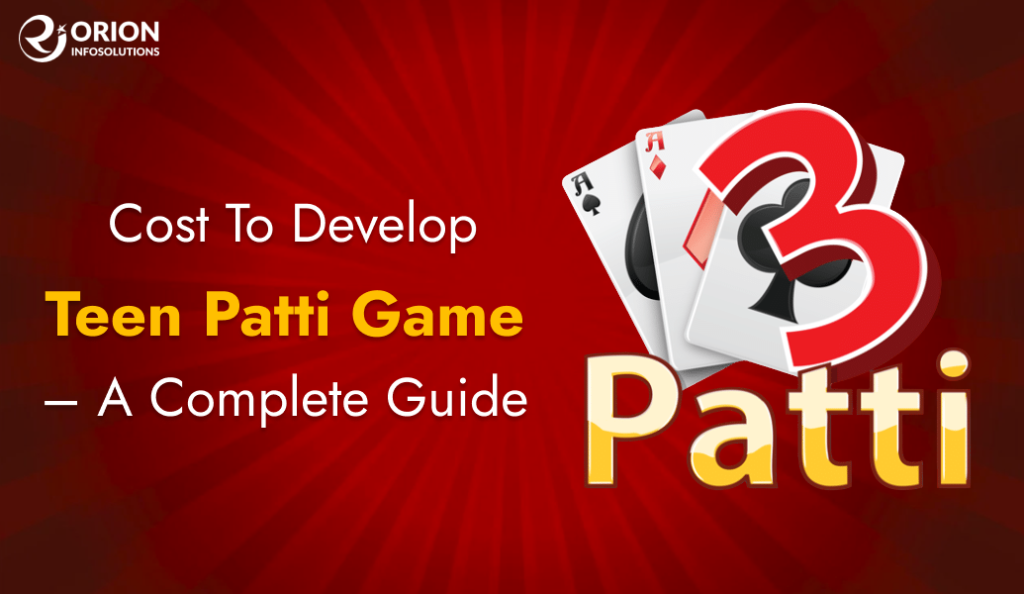The digital age has transformed countless aspects of our lives, and traditional entertainment is no exception. Among the myriad recreational activities that have found a new home online, card games hold a special place, particularly in India. The classic tash patti game, a beloved pastime played in homes and social gatherings for generations, has seamlessly transitioned into the virtual realm, giving rise to the phenomenon of teen patti real cash applications. This evolution offers unprecedented accessibility and convenience, allowing enthusiasts to engage in thrilling card battles from anywhere, at any time, with the added excitement of real monetary stakes. However, with the allure of potential winnings comes a critical need for prudence, responsibility, and a deep understanding of the digital payment security landscape. This article delves into the intricacies of playing real-money Teen Patti online, emphasizing the essential measures players must adopt to ensure their financial safety and foster a responsible gaming environment. It is a comprehensive guide for anyone looking to navigate the vibrant world of online card games, ensuring that the pursuit of entertainment does not come at the cost of security or well-being.
The journey of teen patti from a casual tash patti game to a high-stakes online activity mirrors the broader digital transformation gripping societies worldwide. Traditionally, Teen Patti, a popular Indian variant of poker, has been a staple of festivals, family gatherings, and friendly competitions. Its simple rules yet complex strategies involving bluffing and calculated risks made it an engaging social activity. The advent of smartphones and widespread internet connectivity, especially with the proliferation of affordable data, catalyzed its migration online. Suddenly, the barriers to entry for a game of Teen Patti vanished. No longer did players need to gather physically; a few taps on a screen could connect them with opponents from across the country, transforming a localized pastime into a national digital phenomenon. The introduction of teen patti real cash further amplified its appeal, adding a layer of competitive intensity and the tangible excitement of winning actual money. This shift, while opening new avenues for entertainment and social interaction, also introduced a new set of challenges, primarily concerning financial transactions and player safety. The sheer volume of transactions occurring daily on these platforms necessitates robust security protocols, and it falls upon both the platforms and the players to ensure these protocols are understood and adhered to.
At the heart of the teen patti real cash ecosystem lies the intricate web of digital payment systems. For players to engage in real-money games, they must be able to deposit funds securely into their gaming accounts and withdraw their winnings with equal ease and confidence. India’s digital payment infrastructure has witnessed a monumental boom, offering a diverse array of options that cater to varying user preferences. These include popular methods like UPI (Unified Payments Interface), which facilitates instant bank-to-bank transfers, net banking, various e-wallets (such as Paytm, PhonePe, Google Pay), and traditional credit/debit card transactions. Each of these methods comes with its own set of security features and operational nuances. For instance, UPI transactions are often secured by a personal PIN, while e-wallets rely on strong passwords and sometimes biometric authentication. Credit and debit card transactions are typically processed through secure payment gateways that employ encryption and fraud detection mechanisms. Understanding how these systems work is the first step towards ensuring secure transactions. A reputable teen patti real cash platform will integrate with trusted payment gateways and offer multiple convenient and secure deposit/withdrawal options, signaling its commitment to player safety. The foundation of trust in online gaming is built upon the reliability and security of these financial conduits. Without it, the entire edifice of real-money online gaming would crumble.
Fortifying one’s finances in the realm of teen patti real cash requires a multi-pronged approach, combining diligent platform selection with astute personal security practices. For players, the primary responsibility lies in choosing reputable and trustworthy gaming platforms. This involves scrutinizing several key indicators: does the platform possess a valid license from a recognized gaming authority, if applicable in its jurisdiction? Are its security policies clearly outlined and transparent? What do player reviews and independent audits say about its track record regarding fair play and timely payouts? A platform that invests in robust security infrastructure will typically display security badges, such as SSL (Secure Sockets Layer) encryption certificates, which ensure that all data transmitted between the player’s device and the server is encrypted and protected from interception. Furthermore, look for platforms that adhere to industry standards like PCI DSS (Payment Card Industry Data Security Standard) if they handle card payments directly.
Beyond platform selection, individual player practices are paramount. The first line of defense is always strong, unique passwords for gaming accounts and associated payment methods. These passwords should be complex, combining uppercase and lowercase letters, numbers, and symbols, and should never be reused across different online services. Enabling two-factor authentication (2FA) wherever available adds an indispensable layer of security, requiring a second verification step, usually a code sent to a mobile device, in addition to the password. Players must also cultivate a vigilant attitude towards phishing attempts and other social engineering scams. These often come in the form of deceptive emails, SMS messages, or fake websites designed to trick users into revealing their login credentials or financial information. Always verify the sender and the URL before clicking on links or providing sensitive data. When engaging in teen patti real cash games, it is crucial to use secure, private internet connections, avoiding public Wi-Fi networks which are often susceptible to eavesdropping. Regularly reviewing transaction histories on both the gaming platform and linked payment accounts can help detect any unauthorized activity promptly. Finally, understanding and complying with Know Your Customer (KYC) processes is vital. Reputable platforms implement KYC to verify the identity of their players, which is a regulatory requirement aimed at preventing fraud, money laundering, and underage gambling. While it may seem like an extra step, KYC protects both the player and the platform by ensuring a secure and legitimate gaming environment. From the platform’s side, strong fraud detection systems, real-time monitoring of transactions, and secure data storage practices are essential to complement player-side security efforts.
While the thrill of teen patti real cash is undeniable, the prudent player understands that responsible gaming is not merely an option but a fundamental requirement for a sustainable and enjoyable experience. This goes beyond just financial security and delves into the psychological aspects of engaging with games of chance. The core principle of responsible gaming is to view tash patti game played online for money as a form of entertainment, akin to buying a movie ticket or attending a concert, rather than a reliable source of income or a solution to financial problems. Setting clear, non-negotiable limits on both the time and money spent is crucial. Many reputable teen patti real cash platforms offer built-in tools that allow players to set daily, weekly, or monthly deposit limits, loss limits, and even session time limits. Utilizing these features demonstrates self-awareness and control.
It is equally important for players to recognize the warning signs of problematic gambling. These can include spending more money or time than intended, chasing losses (trying to win back money that has been lost), neglecting responsibilities at work or home, borrowing money to gamble, or feeling anxious, irritable, or depressed after playing. If these signs emerge, seeking help is imperative. Responsible platforms often provide resources for self-assessment, links to professional help organizations, and options for self-exclusion, allowing players to voluntarily block themselves from accessing the platform for a specified period. The psychological allure of a tash patti game with real money stakes can be powerful, and managing impulses, understanding probabilities, and being prepared to walk away are hallmarks of a prudent player. The goal is to ensure that the excitement of the game remains a source of enjoyment, not distress. Engaging in teen patti real cash should enhance leisure time, not detract from one’s overall quality of life.
Beyond personal responsibility and platform security, players should also be cognizant of the evolving legal and regulatory landscape surrounding online gambling in India. The legality of online teen patti real cash varies significantly from state to state, often hinging on the distinction between “games of skill” and “games of chance.” While Teen Patti is widely considered a game of chance due to its reliance on card distribution, some interpretations or specific formats might argue for elements of skill. However, for most tash patti game variations involving real money, players must be aware of the specific laws applicable in their resident state. Operating within the legal framework is not just about compliance; it also ensures that players have a certain degree of legal recourse in case of disputes, although this can be complex in unregulated markets. Reputable platforms will generally adhere to the most stringent interpretations of the law, sometimes restricting access to players from certain states where real-money gaming is prohibited. Staying informed about these legal nuances protects players from potential legal complications and ensures they are participating in a legitimate environment.
In conclusion
The world of teen patti real cash offers an exciting and engaging digital adaptation of a cherished tash patti game. Its accessibility and the thrill of real stakes have drawn millions of players into the online arena. However, this convenience comes with the inherent responsibility of prioritizing security and adopting prudent gaming habits. From meticulously selecting licensed and secure platforms that employ robust digital payment security measures like SSL encryption and KYC processes, to practicing personal diligence with strong passwords and vigilance against scams, every step contributes to a safer gaming experience. More importantly, embracing responsible gaming principles – setting limits, recognizing warning signs, and seeking help when needed – transforms playing teen patti real cash from a potentially risky venture into a truly enjoyable form of entertainment. By combining technological safeguards with informed player behavior, individuals can confidently navigate the vibrant landscape of online card games, ensuring that their digital financial transactions remain secure and their pursuit of fun remains responsible. The prudent player is not just one who seeks to win, but one who plays wisely, safely, and sustainably, ensuring that the digital tash patti game remains a source of joy and not regret.

